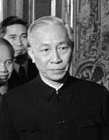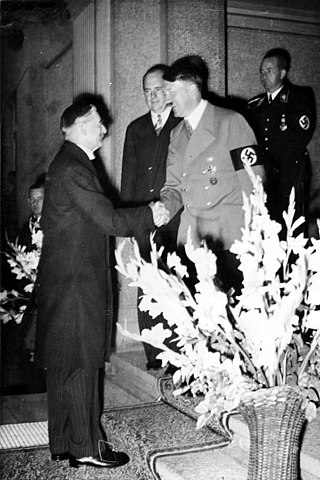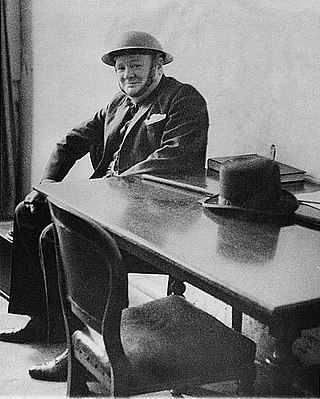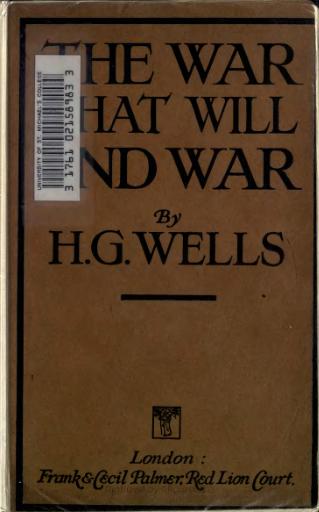Related Research Articles

Arthur Neville Chamberlain was a British politician who served as Prime Minister of the United Kingdom from May 1937 to May 1940 and Leader of the Conservative Party from May 1937 to October 1940. He is best known for his foreign policy of appeasement, and in particular for his signing of the Munich Agreement on 30 September 1938, ceding the German-speaking Sudetenland region of Czechoslovakia to Nazi Germany led by Adolf Hitler. Following the invasion of Poland on 1 September 1939, which marked the beginning of the Second World War, Chamberlain announced the declaration of war on Germany two days later and led the United Kingdom through the first eight months of the war until his resignation as prime minister on 10 May 1940.

Lê Đức Thọ, born Phan Đình Khải in Nam Dinh Province, was a Vietnamese revolutionary general, diplomat, and politician. He was the first Asian to be awarded the Nobel Peace Prize, jointly with United States Secretary of State Henry Kissinger in 1973, but refused the award.
The silent majority is an unspecified large group of people in a country or group who do not express their opinions publicly. The term was popularized by U.S. President Richard Nixon in a televised address on November 3, 1969, in which he said, "And so tonight—to you, the great silent majority of my fellow Americans—I ask for your support." In this usage it referred to those Americans who did not join in the large demonstrations against the Vietnam War at the time, who did not join in the counterculture, and who did not participate in public discourse. Nixon, along with many others, saw this group of Middle Americans as being overshadowed in the media by the more vocal minority.

The Munich Agreement was an agreement concluded at Munich on 30 September 1938, by Nazi Germany, Great Britain, the French Republic, and Fascist Italy. The agreement provided for the German annexation of part of Czechoslovakia called the Sudetenland, where more than three million people, mainly ethnic Germans, lived. The pact is also known in some areas as the Munich Betrayal, because of a previous 1924 alliance agreement and a 1925 military pact between France and the Czechoslovak Republic.

Appeasement, in an international context, is a diplomatic policy of making political, material, or territorial concessions to an aggressive power to avoid conflict. The term is most often applied to the foreign policy of the British governments of Prime Ministers Ramsay MacDonald, Stanley Baldwin and Neville Chamberlain towards Nazi Germany and Fascist Italy between 1935 and 1939. Under British pressure, appeasement of Nazism and Fascism also played a role in French foreign policy of the period but was always much less popular there than in the United Kingdom.

The phrase "blood, toil, tears and sweat" became famous in a speech given by Winston Churchill to the House of Commons of the Parliament of the United Kingdom on 13 May 1940. The speech is sometimes known by that name.

"Peace for our time" was a declaration made by British Prime Minister Neville Chamberlain in his 30 September 1938 remarks in London concerning the Munich Agreement and the subsequent Anglo-German Declaration. The phrase echoed Benjamin Disraeli, who, upon returning from the Congress of Berlin in 1878, had stated, "I have returned from Germany with peace for our time." The phrase is primarily remembered for its bitter ironic value since less than a year after the agreement, Hitler's invasion of Poland began World War II.

Sir Nevile Meyrick Henderson was a British diplomat who served as the ambassador of the United Kingdom to Germany from 1937 to 1939.

"Bring Us Together" was a political slogan popularized after the election of Republican candidate Richard Nixon as President of the United States in the 1968 election. The text was derived from a sign which 13-year-old Vicki Lynne Cole stated that she had carried at Nixon's rally in her hometown of Deshler, Ohio, during the campaign.

The European foreign policy of the Chamberlain ministry from 1937 to 1940 was based on British Prime Minister Neville Chamberlain's commitment to "peace for our time" by pursuing a policy of appeasement and containment towards Nazi Germany and by increasing the strength of Britain's armed forces until, in September 1939, he delivered an ultimatum over the invasion of Poland, which was followed by a declaration of war against Germany.

"The war to end war" is a term for the First World War of 1914–1918. Originally an idealistic slogan, it is now mainly used sardonically, since not only was the First World War not history's final war, but its aftermath also indirectly contributed to the outbreak of the even more devastating Second World War.

The desk in the Vice President's Room of the United States Capitol, colloquially known as the Wilson desk and previously called the McKinley-Barkley desk, is a large mahogany partner's desk used by U.S. Presidents Richard Nixon and Gerald Ford in the Oval Office as their Oval Office desk. One of only six desks used by a President in the Oval Office, it was purchased in 1898 by Garret Augustus Hobart, the 24th Vice President of the United States, for the Vice President's Room in the United States Capitol.

The Godesberg Memorandum is a document issued by Adolf Hitler in the early hours of 24 September 1938 concerning the Sudetenland and amounting to an ultimatum addressed to the government of Czechoslovakia.
A Total and Unmitigated Defeat was a speech by Winston Churchill in the House of Commons at Westminster on Wednesday, 5 October 1938, the third day of the Munich Agreement debate. Signed five days earlier by Prime Minister Neville Chamberlain, the agreement met the demands of Nazi Germany in respect of the Czechoslovak region of Sudetenland.
The following events occurred in September 1938:

American diplomat Henry Kissinger (1923–2023) played an important and controversial role in the Vietnam War. Starting out as a supporter, Kissinger came to see it as a drag on American power. In 1968, Kissinger leaked information about the status of the peace talks in Paris to the Nixon campaign and was rewarded with being appointed National Security Adviser under Richard Nixon. As National Security Adviser, Kissinger sought initially to find a way to end the war on American terms. During his tenure, Kissinger came to differ with Nixon as Kissinger was more in favor of seeking an end to war as expeditiously as possible with minimum damage to American prestige. In October 1972, Kissinger reached a draft agreement that Nixon at first rejected, leading to the Christmas bombings of December 1972. The agreement that Kissinger signed in January 1973—which led to the American withdrawal from Vietnam in March of that year—was very similar to the draft agreement rejected the previous year. As National Security Adviser and Secretary of State, Kissinger favored continued American support for South Vietnam right until the collapse of that state in April 1975, which Kissinger blamed Congress for.
Decent interval is a theory regarding the end of the Vietnam War which argues that from 1971 or 1972, the Nixon Administration abandoned the goal of preserving South Vietnam and instead aimed to save face by preserving a "decent interval" between withdrawal and South Vietnamese collapse. Therefore, Nixon could avoid becoming the first United States president to lose a war.
References
- ↑ "Nixon TV ad". Archived from the original on September 19, 2008. Retrieved May 29, 2009.
- ↑ Gilbert Morales, Critical Perspectives on the Vietnam War, p. 120-125, 2005, ISBN 1-4042-0063-0, ISBN 978-1-4042-0063-0
- ↑ Johns, Andrew (2010). Vietnam's Second Front: Domestic Politics, the Republican Party, and the War. p. 198.
- ↑ Cicero, Cicero: Letters to Atticus , Volume 4, Books 7.10–10, p. 29.
- ↑ Hoyt's New Cyclopedia of Practical Quotations, 1922.
- ↑ Shakespeare, William, Coriolanus Act iii. Sc. 2.
- ↑ Burke, Edmund, "On Conciliation with the Colonies" (1775).
- ↑ Safire, William, Safire's Political Dictionary (2008), p. 531
- ↑ Commager, Henry Steele and Richard B. Morris, Woodrow Wilson and the Progressive Era 1910-1917 (1972).
- ↑ Chamberlain, Neville, "Peace for Our Time Archived 2018-08-14 at the Wayback Machine , September 30, 1938.
- ↑ Churchill, W.S., "Dishonour and War", September 30, 1938.
- ↑ "Lat temu Józef Beck wypowiedział słowa my w Polsce nie znamy pokoju za wszelką cenę", Dzieję.